Hindi Movie Review: Sukhee doesn’t introduce anything new to the midlife female empowerment genre
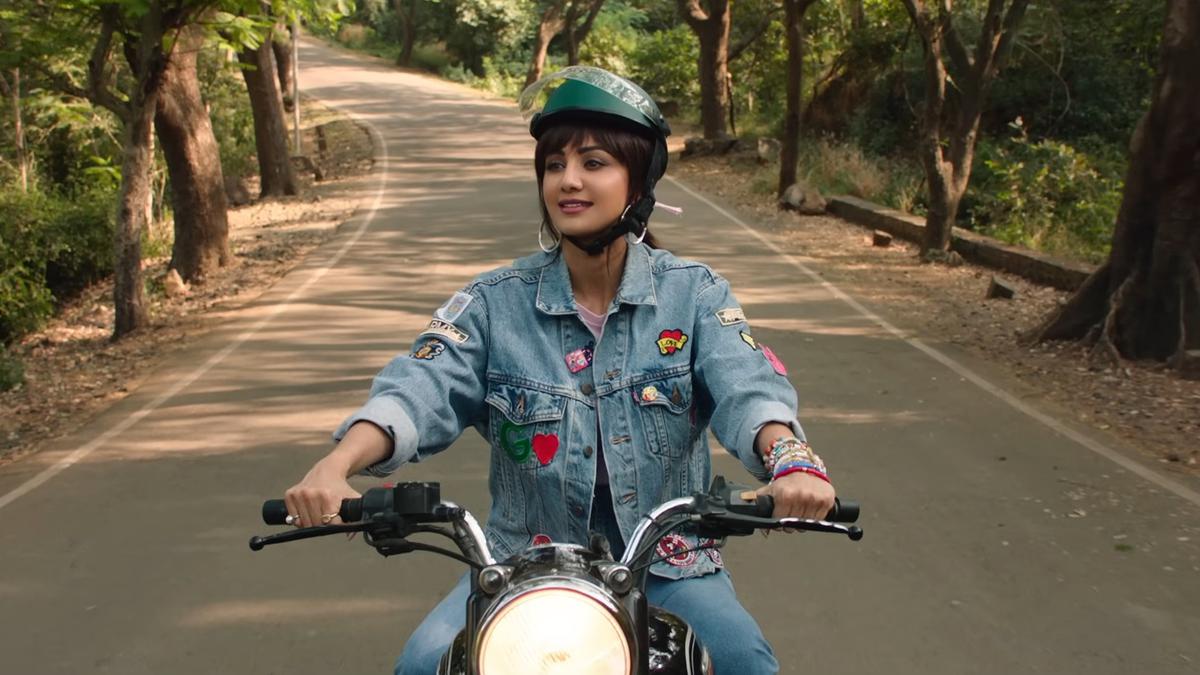
Sonal Joshi’s Sukhee scores plenty of points for being well-intentioned, but virtually none for originality, which isn’t the optimal balance for a greeting card, much less a movie. The latest entry into the “middle-aged woman finds herself” subgenre – which has grown tired in both the East and West – it offers few new insights about midlife reawakening and less edge than even Eat Pray Love. And yet, it’s hard to feel much hostility towards the film because, well, everybody’s heart seems to be in the right place. The title character is sympathetic, the ultimate message is unobjectionable, and the movie as a whole goes down relatively easy. Sukhee feels more unnecessary than it does unenjoyable.
Shilpa Shetty Kundra plays Sukhpreet “Sukhee” Kalra, a Punjabi homemaker whose contributions to her family and marriage go entirely underappreciated. Her husband Guru (Chaitanya Choudhry) is consistently preoccupied by financial climbing and winning contracts at work; her teenage daughter Jassi (Maahi Jain) takes her motherly efforts for granted. Only Sukhee’s elderly father-in-law (Vinod Nagpal) seems to recognize all that she does, and he passes away not a half-hour into the picture. So when an invitation to her 25-year high school reunion lands in her inbox, the disaffected Sukhee realizes that it’s time to return to her teenage home of Delhi and get back in touch with the independent, vivacious young woman she once was, objecting husband be damned.
Tamil Movie Review: Mark Antony brings back linear time travel with mixed results
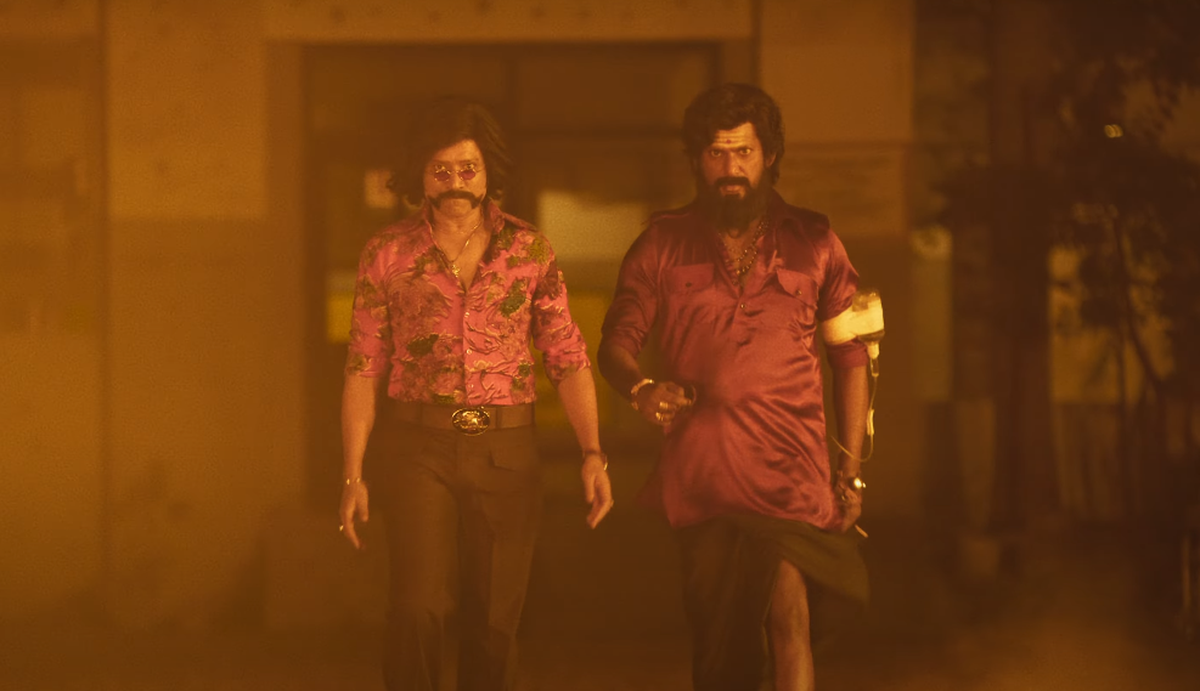
After nearly two years of being inundated with multiverse movies at the multiplex, it’s refreshing to see a straightforward time travel film like Mark Antony, which takes cinematic “alternate realities” back-to-basics in approaching time as a linear absolute. It’s also a reminder that multiverse stories have it comparatively easy; when filmmakers enjoy an endless number of parallel realities at their disposal, they can seemingly offer any solution they want to a narrative dead-end. More traditional time travel narratives like Mark Antony require the writers to show more of their math when it comes to the Butterfly Effect, which is typically a more rigorous undertaking.
When onscreen time travel logic is done right, the juice is worth the squeeze: as a viewer, there’s something very satisfying about validating that the math checks out. But the constant arithmetic can also get a little tedious if it’s not being consistently used to take the story in fun new directions, which gets to be the case here after an energetic start.
Mark Antony definitely has enough stylistic swagger, scenery-chewing performances, and goofy aplomb to sustain for a good while, at least until intermission. It moves at a mile-a-minute pace as it initially sets up all of the players and rules of its time travel narrative, allowing the audience just enough breathing room to digest the particulars without getting lost. But make no mistake: meticulous plotting aside, this is an absurdist high-wire act, not a particularly serious piece of sci-fi filmmaking.
Telugu Movie Review: Miss. Shetty Mr. Polishetty feeds off its endearing leading man

For the first half-hour or so of Miss. Shetty Mr. Polishetty, I thought I was in for a rough ride, with the movie seemingly better suited for the Hallmark Channel than theatrical screens. With a cloying mother-daughter relationship, feminist politics that struck me as painfully outdated compared to those of other recent Telugu films I’ve seen, and an intentionally prickly lead performance by Anushka Shetty, I was fearing the worst as a viewer. But every so often, an engaging movie simply makes a bad first impression, which thankfully turned out to be the case here.
The premise is as contrived as they come, even for a romantic comedy. Shetty’s protagonist, Anvitha, is a renowned chef currently working at a prestigious hotel in London. She’s on top of the world professionally, but her personal life is nonexistent beyond her special relationship with her mother (played by Jayasudha). Even this bond is threatened, however, when Mom’s health begins to deteriorate. Mom asks Anvitha to take her back home to spend her final days in Hyderabad, where Anvitha remains after she passes. Feeling more alone than ever with only her friend Kavya (Sonia Deepti) to lean on, Anvitha hatches a somewhat desperate plan to fill the void. She’ll get pregnant with a child of her own, with the help of… a sperm donor. After all, she doesn’t have the time, patience, or trust required to let an actual partner into her life.
Hindi Movie Review: Shah Rukh Khan’s Jawan lives up to the massive hype

This past January, Shah Rukh Khan returned to his first leading role following a four-year hiatus in Pathaan, which quickly became the highest-grossing Hindi film of all-time in India (not to mention a long list of international markets where the bar was lower). Less than nine months later, it looks like he’ll set that same record all over again with Jawan, which as of this writing has already claimed the title for top Hindi film opening day. Of course, these things can change quickly based on audience word-of-mouth, but I wouldn’t expect a slowdown any time soon for Jawan, as it delivers basically everything one could want from a mass appeal blockbuster. Like Pathaan, the movie boasts magnetic performances from both Khan and his costars, solid action set-pieces backed by well-earned stakes and suspense, surprising twists, and substantive but not patronizing social commentary. In other words, it’s the whole package.
Jawan’s very contemporary riff on a classic Robin Hood story makes it perhaps the biggest international blockbuster to date to tackle the global push towards social and economic populism. Khan plays the jailer Azad, who runs a women’s prison acclaimed for its rehabilitation programs. But that’s just his public-facing day job. Behind the walls of the prison – and beyond them – he also leads a covert team of six of the inmates imposing vigilante political justice in India. Early in the film, they hijack a Mumbai Metro train to extort the cash needed to pay down a slew of predatory government loans that were forced on farmers and other working-class people. In a subsequent mission, they shoot a corrupt Health Minister and rush him in for treatment at one of the government hospitals that his department deprives of proper resources. When the facility predictably doesn’t have the right surgeon or equipment, Azad demands that all government hospitals be supplied the proper inventory within five hours, before the patient can be saved.
Kannada Movie Review: Sapta Sagaradaache Ello (Side A) feels like the beginning of something big for the classical romantic drama
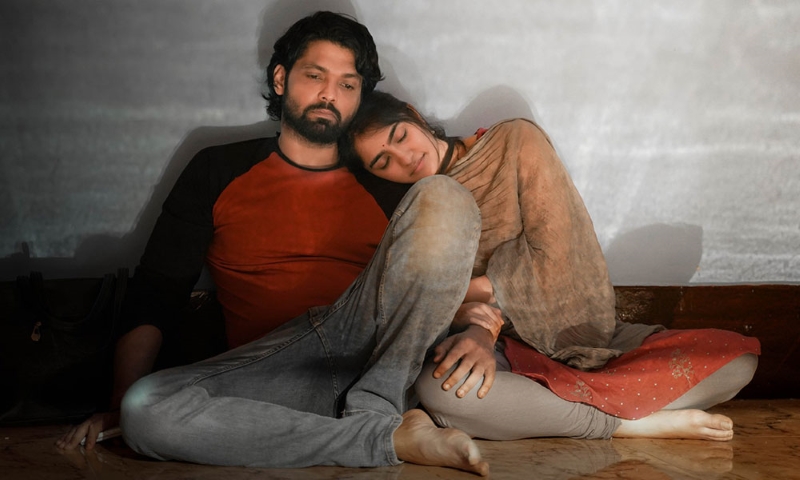
With the tragic romance seemingly deemed out-of-vogue by Hollywood and Bollywood alike, Sapta Sagaradaache Ello (Side A) stands a powerful announcement that the Kannada film industry may be here to fill the void. There’s a certain classical timelessness to the movie’s approach to romantic storytelling that registers as a feeling, right from the start. We’re introduced to the focal couple in the midst of a squabble that only goes on to underscore the way they perfectly complement each other. But there’s also a deep foreboding: as Manu (Rakshit Shetty) speeds down the road in his employer’s expensive Mercedes while Priya (Rukmini Vasanth) begs him to slow down – think of how many years of salary he would owe if he totaled the vehicle! – we know in our bones that this trip is headed towards an ominous destination. There’s a lump in our throat well before we even know why.
But the movie also departs from tradition where it counts. In the early going, we’re spared the long-winded and conventional romantic backstory in favor of smaller, tenderer moments that bring us into the relationship. There’s no meet-cute, no quirky foreplay – just human glimpses of a young couple navigating an authentic (albeit still cinematically heightened) lower-middle-class reality. It’s hard not to get invested in the two of them early on (even as he makes some classically bad decisions). Manu works as a driver for a wealthy family, while Priya is in her final year of school but fantasizes about becoming a famous singer. Shopping for an apartment, they one day decide to pose as a much more well-to-do couple and tour a lavish penthouse, lingering on the balcony together and dreaming of a prosperous future. She yearns to one day have the means to buy a home by the sea, where she grew up, but she’s also perfectly content with the more modest life that they’re building.
Telugu Movie Review: Kushi begins as a lightweight entertainment, ends as a nonsensical drag
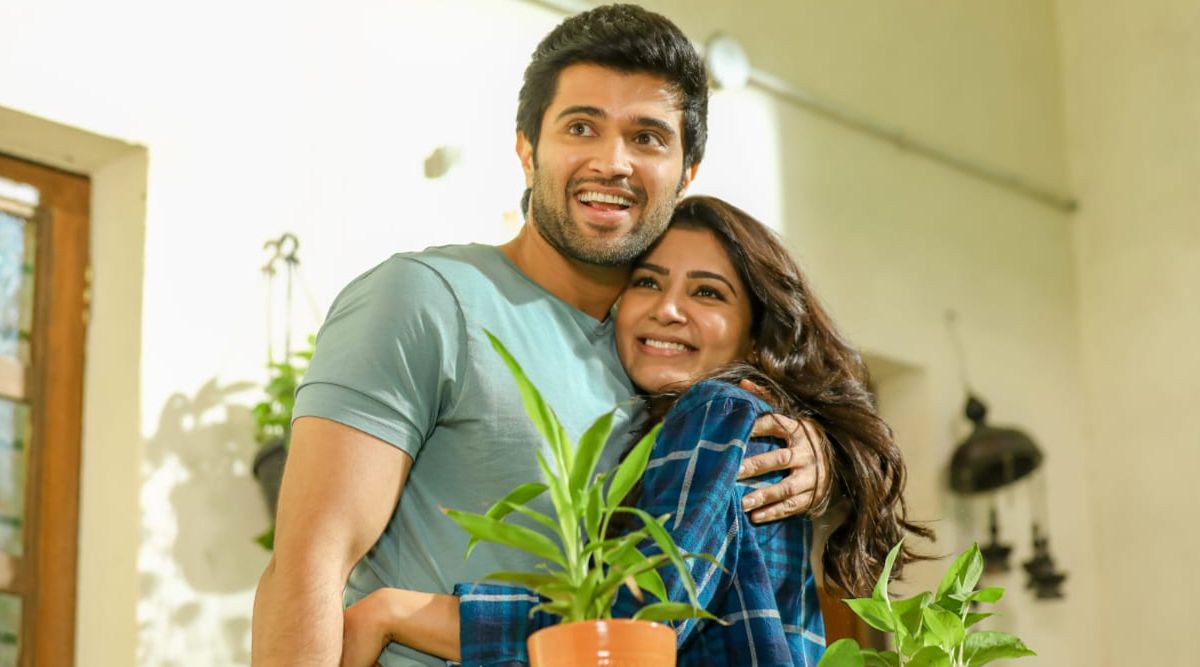
The first act of Kushi, while exceedingly absurd even by the standards of a Telugu comedy, is a pretty fun time at the movies. Protagonist Viplav (Vijay Devarakonda) is a complete dork who hasn’t exactly taken after his intellectual father (Sachin Khedekar), a noted professor and public figure widely known for his atheist views. Viplav, a young and hungry telecommunications worker, forgoes a local work assignment that would keep him in his cushy family digs in Hyderabad for a less desirable job near the tumultuous Pakistani border in Kashmir. Naively, he believes this will be a peaceful and idyllic setting to take in the mountain views and pretend he’s the star of a Mani Ratnam movie, with his repeated references to Roja generating several chuckles. When he gets caught up in warzone gunfire immediately upon arrival, it only momentarily kills Viplav’s wide-eyed buzz.
This is all played for exaggerated laughs, of course, as are Viplav’s first interactions with Aaradhya (Samantha Ruth Prabhu), who he initially assumes to be a Muslim woman from Pakistan. On the contrary, she’s a Hindu wearing a headscarf in the Islamic section of Kashmir as she travels to visit the Mamaleshwar Temple… but why would she ever let the instantly smitten puppy-dog Viplav know that she’s a potentially qualified match for him? Alas, Aaradhya’s attempts to tell white lies to ward off Viplav – namely, that she’s in town to find her orphaned younger brother Feroz – backfire when she underestimates him. A few days and an entertainingly ludicrous bike chase later, he’s brought her every boy named Feroz within a fifty-mile radius. The tone is not unlike that of the recent rom-coms McG has produced for Netflix.
Hindi Movie Review: OMG 2 falters in adapting the original scenario to a fit new social issue
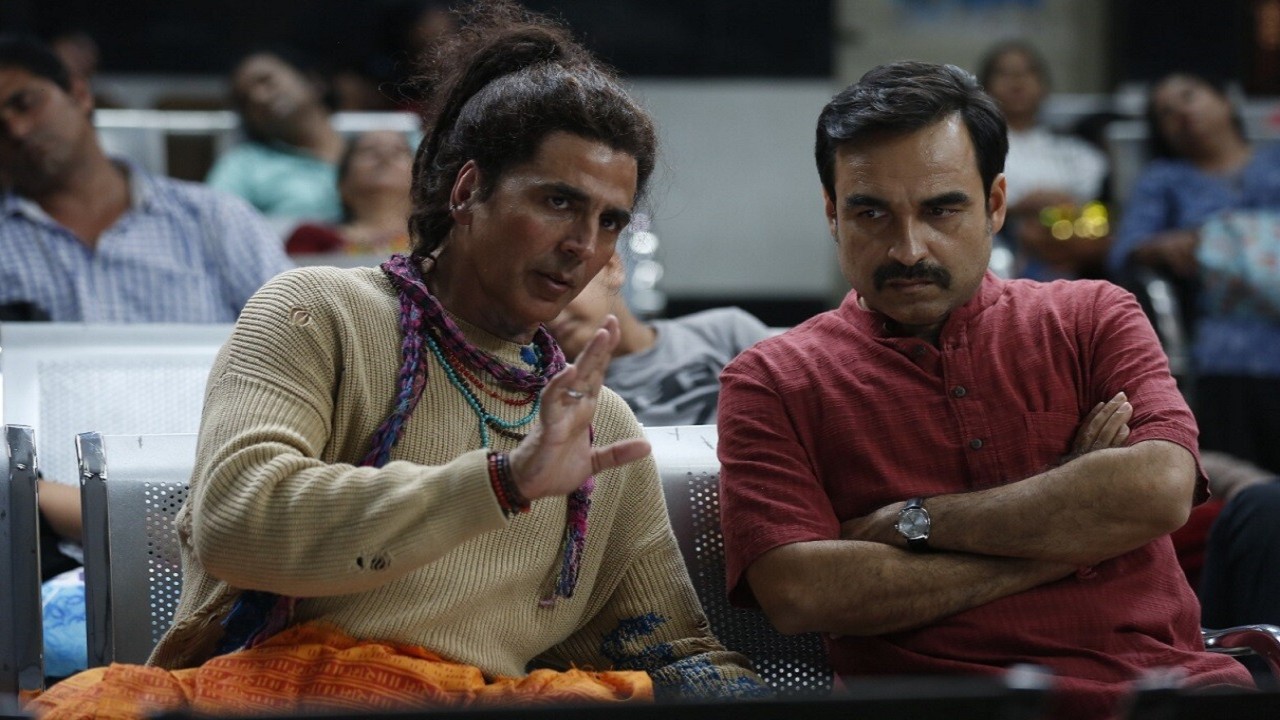
The first Oh My God!, released in 2012, was a flawed film with an intriguing high concept, adapted from the Gujarati stage play Kanji Virudh Kanji and its inspiration, the Australian film The Man Who Sued God. The premise: With the earthquake that destroyed his shop deemed an “Act of God,” atheist Kanji Lalji Mehta seeks to take the responsible party – in this case, the Lord himself – to court. This evolves into a clever morality play that sees Kanji going after the self-anointed religious officers in society who collect donations only to enrich themselves, rather than serve the will of God and help others. While the setup of Oh My God! was better than its execution, which took the story into heavy-handed and obvious directions, it had a thought-provoking central idea relating to organized religion’s role in upholding justness. Looking back, it’s no surprise that such an ingenious, easily articulated concept that hit at the zeitgeist yielded big box office returns.
Oh My God! was clearly intended to be a self-contained story, so it’s hardly a surprise that its connection to this decade-later sequel feels awkward at best. The only common ingredient between the two films is Akshay Kumar, who reprises his role as a divine messenger – this time as a manifestation of Shiva, while last time it was Krishna. But even this part of the sequel feels like it has been shoehorned in. Whereas Kumar came across as a true spiritual guide to Kanji in the first film, offering divine counsel in urging him to read the Gita, Bible, and Quran for answers to his predicament, here he takes on more of the role of a “fairy godfather,” providing convenient solutions for protagonist Kanti Sharan Mudgal (Pankaj Tripathi) whenever he reaches a seemingly unsurmountable obstacle. As such, the franchise’s entire notion of spiritual devotion becomes muddled; whereas the first film ultimately extolled the virtues of unconditional belief in God, here it would seem the takeaway is you only need Him when you’re in a pinch. And this is only the beginning of the story’s thematic confusion.
Hindi Movie Review: Gadar 2 smashes box office records while stoking controversy… but is the movie itself any good?
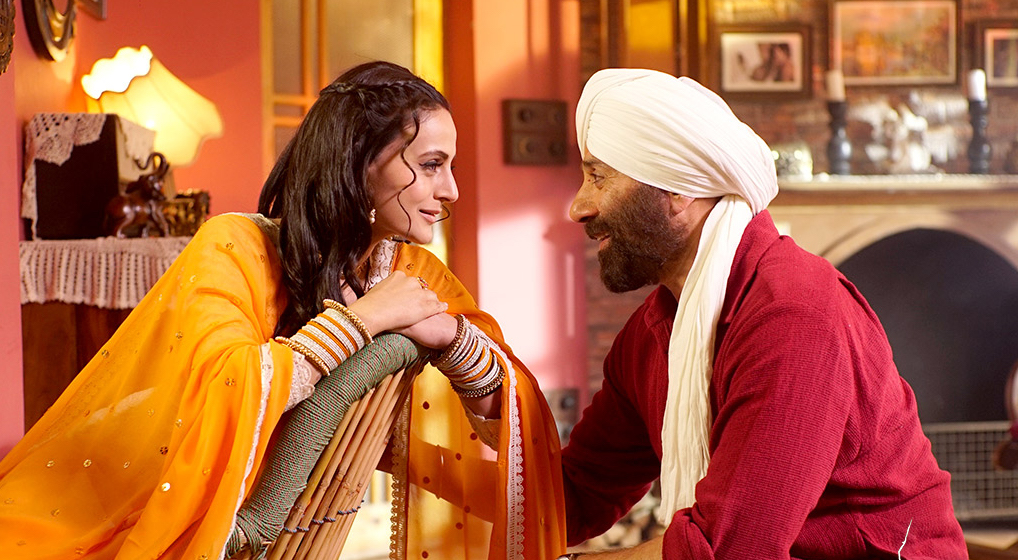
Looking at the reception and box office trajectory of Gadar 2 in India, one can’t help but notice certain similarities with the summer’s surprise smash-hit in the U.S., Sound of Freedom. Both are films that more progressive, educated elites have rejected on political and artistic grounds. In the case of Gadar 2, detractors deem the movie Islamophobic, objectionably nationalistic, and shamelessly nostalgic for a brand of traditionalism that has gone out of vogue. This has especially been the case among the Indian diaspora in the West, where grosses and bookings have been comparatively moderate relative to the film’s domestic haul. In the case of Sound of Freedom, the movie has been labeled conspiratorial, fearmongering, and a distraction from the real causes of its harrowing subject, child trafficking. But as the global liberal media has gone to great lengths to discredit these films, both have become absolute sensations in terms of admissions. Gadar 2 is now the second-highest grossing Hindi film ever released in India, with an outside chance of unseating the top dog, this year’s Shah Rukh Khan-starrer Pathaan.
Of course, unlike Sound of Freedom, Gadar 2 is also a nostalgia play, coming 22 years after its blockbuster predecessor (the story itself is set 17 years later). One might be tempted to call it “long-awaited,” but there was little about the first film that suggested a sequel beyond its box office success. And unlike last year’s American megahit Top Gun: Maverick, this was not a follow-up that the lead actor had teased for years; on the contrary, Sunny Deol was a bit hesitant about reprising arguably his most iconic character, Tara Singh. But the new installment spares no opportunity to relive the glory of the first film. In fact, both of its major musical numbers – “Udd Jaa Kaale Kaava” and “Main Nikla Gaddi Leke” – are simply rearrangements of the songs from the original Gadar: Ek Prem Katha. We also spend an unusually long amount of time viewing clips recapping the first movie at the beginning of this one.

